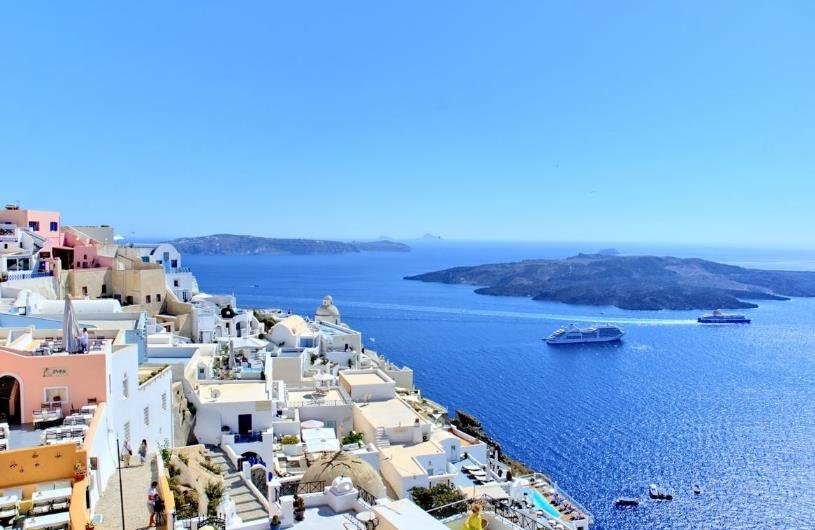Santorini, the picturesque Greek island in the Mediterranean, is often considered one of the most beautiful and romantic destinations in the world. However, not everyone is enchanted by its whitewashed villages, black sand beaches, and stunning sunsets. Some travellers have expressed their disappointment and frustration with the island, calling it a ‘tourist trap’.
Overcrowding and overpricing
Another issue is the high cost of everything on the island. Santorini is one of the most expensive places in Greece, and many travellers feel that they are not getting their money’s worth. The accommodation, food, drinks, and activities are often overpriced and of low quality. Some tourists also reported being scammed or ripped off by taxi drivers, shopkeepers, and tour operators.
Animal abuse and environmental damage
Santorini is also facing environmental challenges, such as water scarcity, waste management, and erosion. The island has a limited supply of freshwater, which is often insufficient to meet the demand of the locals and tourists. The island also produces a large amount of waste, which is not properly disposed of or recycled. The waste often ends up in landfills, or worse, in the sea. The island’s unique landscape, formed by a volcanic eruption, is also vulnerable to erosion and landslides, especially due to the construction and development of hotels and villas.
Alternatives and solutions
Despite the negative aspects of Santorini, the island still has a lot to offer for travellers who are looking for a memorable and enjoyable holiday. Santorini has a rich history, culture, and cuisine, as well as breathtaking views and natural wonders. The island is also home to some of the best wineries and vineyards in Greece, as well as archaeological sites and museums.
However, travellers who want to visit Santorini should do some research and planning before they go. They should avoid the peak season, which is from June to August, and opt for the shoulder or low season, which is from April to May or September to October. They should also book their accommodation and transportation in advance, and compare prices and reviews of different options. They should also respect the local culture, customs, and environment, and follow the rules and regulations of the island.

















